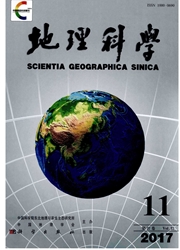

 中文摘要:
中文摘要:
信息技术的快速发展引起了城市研究领域的“大数据”热潮,并带来了传统城市研究方法的变革。但是,其自身存在的诸多缺陷使得学者不得不重新考虑传统小数据的应用角色。但是,传统小数据并没有失去其应用价值,相反,以城市与居民行为活动关系研究为主体的信息时代的城市研究必要充分结合大数据与小数据,并探讨适宜的方法论与方法框架,从而应对日益复杂的城市问题和居民需求。提出“物质空间与活动空间结合”、“相关关系与因果关系结合”、“宏观分析与微观挖掘结合”的3个方法论,并在此基础上构建了“大样本空间发展评价+空间差异与联系发现+小样本影响因素探究”、“小样本模型构建+影响因素发现+大样本验证及挖掘”、“微观活动分析+活动空间界定+影响因素探究”3种方法框架,且分析了这些框架的具体应用,以期为未来的城市研究提供思路和方法借鉴。
 英文摘要:
英文摘要:
Appearance of Information and communication technology has set off a new wave of big data to pro- mote a transformation of the traditional methods in urban studies. However, types of limitations of big data al- so make scholars rethink the role of small data in specific applications for research. We believe that the small data will not lose its value, instead, it can be combined with big data in urban study, which is needed to focus on relationship between urban and resident activity in the information era. Therefore, we should discuss a new framework for such combination on complicated urban problems and diversified resident demands. Firstly, we put forward to three methodologies including combination between physical space and activity space, combina- tion between correlativity and causality, and combination between macro-scale analysis and micro-scale analy- sis. Secondly, based on above methodologies, we build three method frameworks for urban studies in the infor- mation era, namely 'Spatial development evaluations for big samples+Spatial difference and connection dis- covery+Factors discussions for small samples', 'Model building for small samples+Factors discussions+Veri- fications and explorations for big samples', and 'Micro-analysis of activities+Delineations of activity space+ Factors discussions'. Finally, we discuss applications of above three method frameworks.
 同期刊论文项目
同期刊论文项目
 同项目期刊论文
同项目期刊论文
 期刊信息
期刊信息
